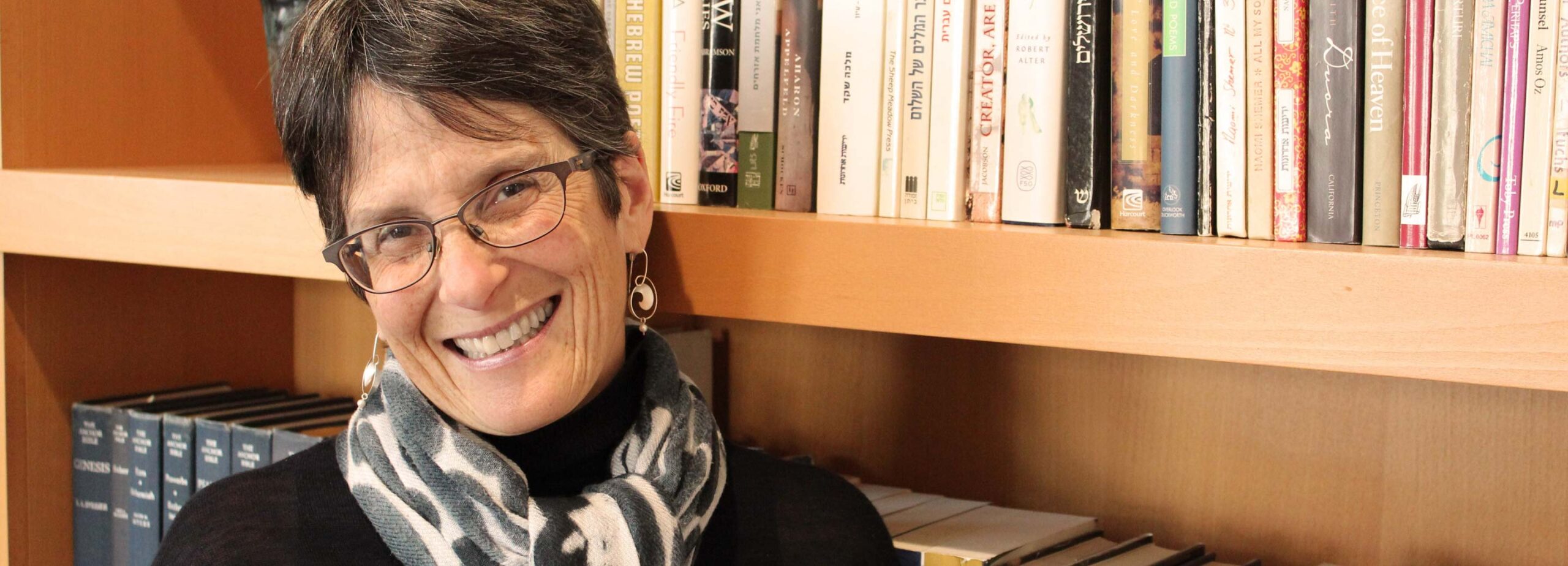Exodus Blessing for the Month of Shevat: On Allowing the Hard Places to Soften

Again and again, in this week’s Torah portion and throughout the Exodus narrative, we encounter the heart of Pharaoh—hard, heavy, impervious.
We can’t help but be troubled by God’s declaration early in this week’s reading, Va’era: “I will harden Pharoah’s heart, that I may multiply My signs and marvels in the land of Egypt.”
How is this possible? A God who causes the hardening of the tyrant’s heart—and in turn, the suffering of those subject to his brutal regime—only to multiply His own miracles, to magnify His own majesty and might? It is a theologically scandalous claim, and when one lingers long enough to contemplate the human toll that follows as the story unfolds, it is a haunting image of the divine. Is this the God we want to worship?
It is a timeless and intractable question. But there is a question beneath this question that tugs at me even more powerfully this year—and that is the question of the hardened heart itself.
Whatever theological language we use, or choose to reject, we are not strangers to the hardened heart of Pharaoh. We know it too well. We have experienced it in our enemies and in our loved ones; we have experienced it in ourselves.
What is it that causes the heart to harden, and what might allow it to soften again?
There is a commentary on this week’s portion by the medieval commentator Rashi that I can’t shake as I think about this question. Rashi picks up on a seemingly unremarkable detail in the text. In Exodus chapter 7:14-16, God tells Moses: “Pharaoh is stubborn and refuses to let the people go. Go to Pharaoh in the morning, as he is coming out to the water, and station yourself before him at the edge of the Nile . . . and say to him, The Lord, the God of the Hebrews, sent me to you to say, “Let my people go . . .”
What interests Rashi—and the earlier midrashim upon which he draws—is the setting that God selects for this encounter between Moses and Pharaoh. Why does God instruct Moses to go to Pharaoh in the morning, why at the edge of the Nile, why as he is coming out of the water?
Here is Rashi’s response:
“’Look, he goes out to the water:’ (7:15)—to perform his bodily needs. For he claimed to be a god, and therefore asserted that he had no bodily needs (lit. ‘did not need to clear his bowels’); so, he would rise early in the morning, and go out to the Nile to perform his needs there in secret.” (Citing Midrash Tanchuma, Va’era 14, Exodus Rabbah 9:8)
Moses is sent to speak to Pharaoh in a moment of all-too-human vulnerability—the vulnerability of living in a body that has needs—a vulnerability made more profound by the very effort to hide it and deny it.
In her analysis of this midrash, Bible scholar Aviva Zornberg observes, “Pharaoh constructs himself as a god, without needs. In the midrashic expression, he is eino machnis ve’eino motzi, he takes in nothing and evacuates nothing. He neither eats nor eliminates waste matter. That cycle, depending on a vital traffic through the orifices of the body, is denied by one who claims to be above change, beyond the cycles of in and out, hunger and fullness, the vicissitudes of time and bodily state . . . This is the moment of ‘neediness,’ that he must hide at all costs.”
Perhaps this is where the hardening of the heart begins. In the denial of what makes us vulnerable, the denial of what makes us need, the denial of what makes us human. This is the truth that Pharaoh must hide, as much from himself as from others.
Why does God tell Moses to go speak to Pharaoh in this moment? There may be an element of humiliation—the Pharaoh who would be god is exposed as all-too-human. The emperor has no clothes.
But I think there is something deeper going on—an understanding that Pharaoh will not be able to open his heart until he can acknowledge his own embodied humanity. As long as he is attached to the fantasy of an impervious self, his heart will indeed remain impervious to the pleas of others, to the suffering of those whose shared humanity he has denied.
Pharaoh is not alone in his longing to deny his own vulnerability. He is not alone in his desire to be impenetrable and impervious. He is not alone in his fear of being exposed as a human being who is full of holes, who is limited and in need.
This is a truth we are asked not only to acknowledge, but to bless—each day in our morning prayers and each time we use the bathroom to attend to our own bodily needs. “Blessed are You, Adonai our God, Sovereign of the Universe, who formed human beings with wisdom and created within them many openings and many hollow spaces. If one of them were to be burst open or blocked up, we would not be able to stand before You for even one hour.”
The blessing whispers to us a vital, life-giving message. The holes and hollows within us are not only a reminder of our mortality. It is through them and from them that we are born and give birth.
As we enter this month of Shevat with its hints of renewal—
the stirrings of new life happening underground in the holes and hollows of the earth itself—
may we meet at the water’s edge,
listening for what we need to let go,
allowing the hard places within us to soften,
hearts open to what is waiting to be born.
Rabbi Sharon Cohen Anisfeld is president of Hebrew College in Newton, MA.

